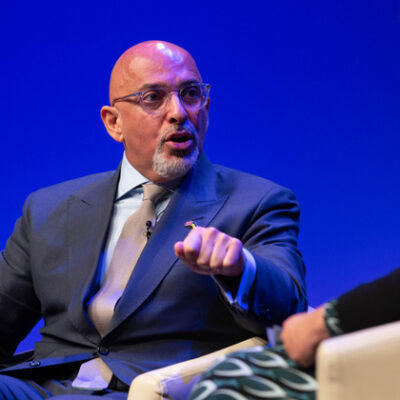Ministers have ditched a condition catch-up mentors must be graduates and will now allow larger tutoring groups, in a raft of changes that water down criteria to use the National Tutoring Programme.
Education secretary Nadhim Zahawi accepted there had been “challenges” with the flagship catch-up scheme, but that it was an “invaluable addition” to the education system.
New figures show just over a third of the promised two million courses have started this year, with the majority organised by schools themselves.
Zahawi announced today that £65 million of the funding originally for the NTP’s approved tutors and academic mentor routes will now go into the school-led tutoring arm of the programme.
The government has also said that academic mentors no longer have to be graduates, instead they must now have A-levels to be eligible to apply.
And schools now only need 20 per cent disadvantaged children to apply for academic mentor support (down from 30 per cent).
Meanwhile, schools using the tuition partners arm of the NTP can now use their “discretion” to have 1:6 group sizes – up from 1:3.
The changes come as ministers are under fire for the performance of NTP contractor Randstad.
Figures from last year showed it was way behind on the government’s catch-up promise to provide two million tutoring courses this year.
It also follows tuition partners being told they no longer have to reach their 65 per cent pupil premium target, as revealed by Schools Week. Government said this would allow some “operational flexibility”.
Just over a third of courses target reached
“Ad hoc” figures released by the Department for Education this morning show that 720,000 tutoring courses have begun as of February 27.
That’s just 36 per cent of the overall 2 million courses target for this year, up from 15 per cent for the first term.
However, 532,000 of these started courses are estimated to be through the new £579 million schools-led tutoring pillar, where schools are given the money directly to sort out their own tutoring. This is about 50 per cent of the route’s more than one million courses target.
Just 114,000 courses had started by pupils through the tuition partners pillar, where tuition companies provide catch-up coordinated by Randstad. This is just 21 per cent of the firm’s 524,000 target for this year.
Meanwhile, only 74,000 courses were started by pupils through the academic mentors route – the third pillar of the NTP. This equates to 29 per cent of the 252,000 target this year.

But government insists the programme “remains on track” to provide two million courses, with the delivery always expected to ramp up later in the school year.
Zahawi told the school leaders’ ASCL conference this morning he was proud that over 1 million courses have been delivered since the NTP’s launch by five charities in 2020.
He added: “But there are still children who need this targeted tuition, and I know that many of you have had challenges with the programme. I have listened and I have heard you, and we are making improvements as I speak to you today.
“That includes the immediate transfer of up to £65 million into school-led tutoring from the other two routes. It’s become clear to me that by far the most popular route is the one run by you, the schools.”
DfE wants schools leavers as mentors
As well as opening up academic mentors to more schools, DfE has extended the criteria to schools that had to repeatedly close or have high absence rates because of Covid may also be eligible.
Previously these mentors had to be a graduate, or have qualified teacher status.
But the criteria has now been lowered to needing 3 A-levels at A*- C grade, with a salary of £19,000. Graduates will get a pay rise to £21,000.
DfE now says the “role is perfect for recent graduates, school leavers taking a gap year, or those considering a career in teaching or education”.
On tuition ratios, Randstad’s contract says tutoring sessions must be in small groups – so a maximum of one tutor to three children.
DfE say while they expect 1:3 to remain “standard”, schools can use their “discretion” when determining group sizes, with a cap of up to 1:6.
This will allow “greater flexibility” under the tuition partners pillar, such as for phonics where pair work is required.
Research by the Education Endowment Foundation, which ran the pillar last year, says once group sizes increase above six or seven “there is a noticeable reduction in effectiveness”.
But they add that the quality of teaching in small groups may be “as or more important than” the precise group size.








Your thoughts